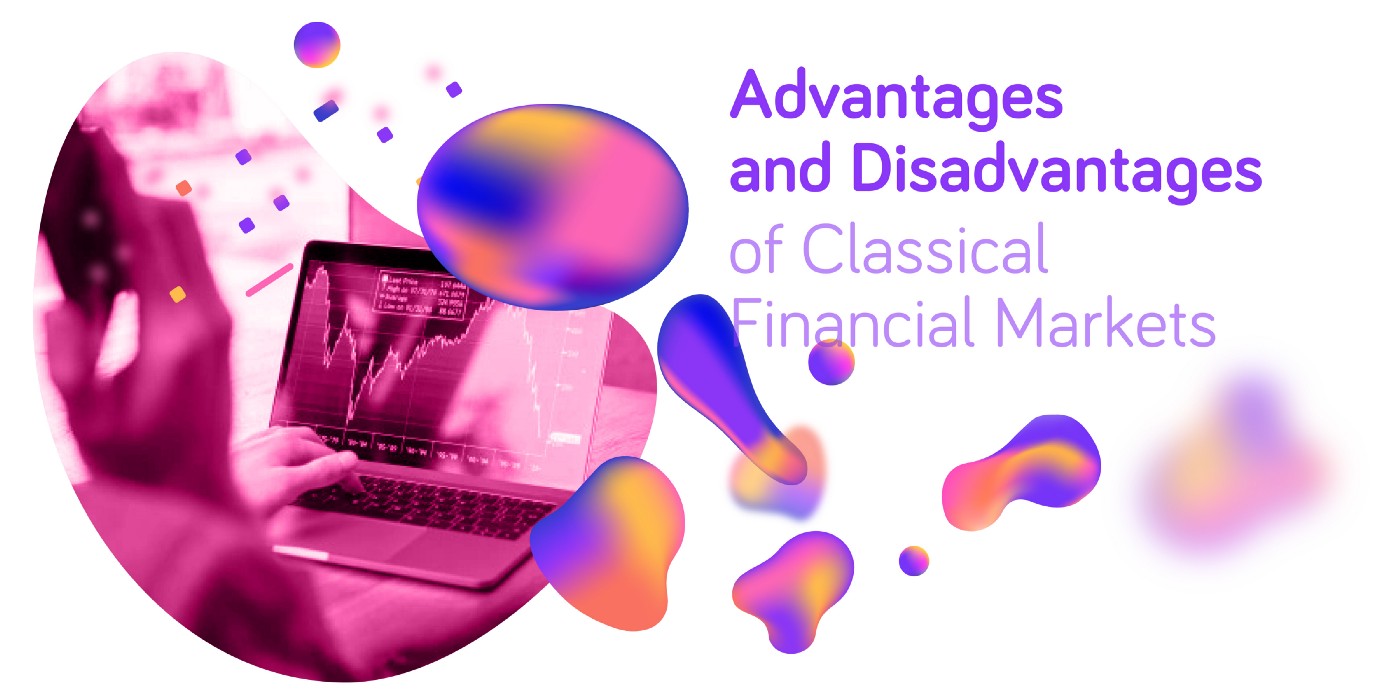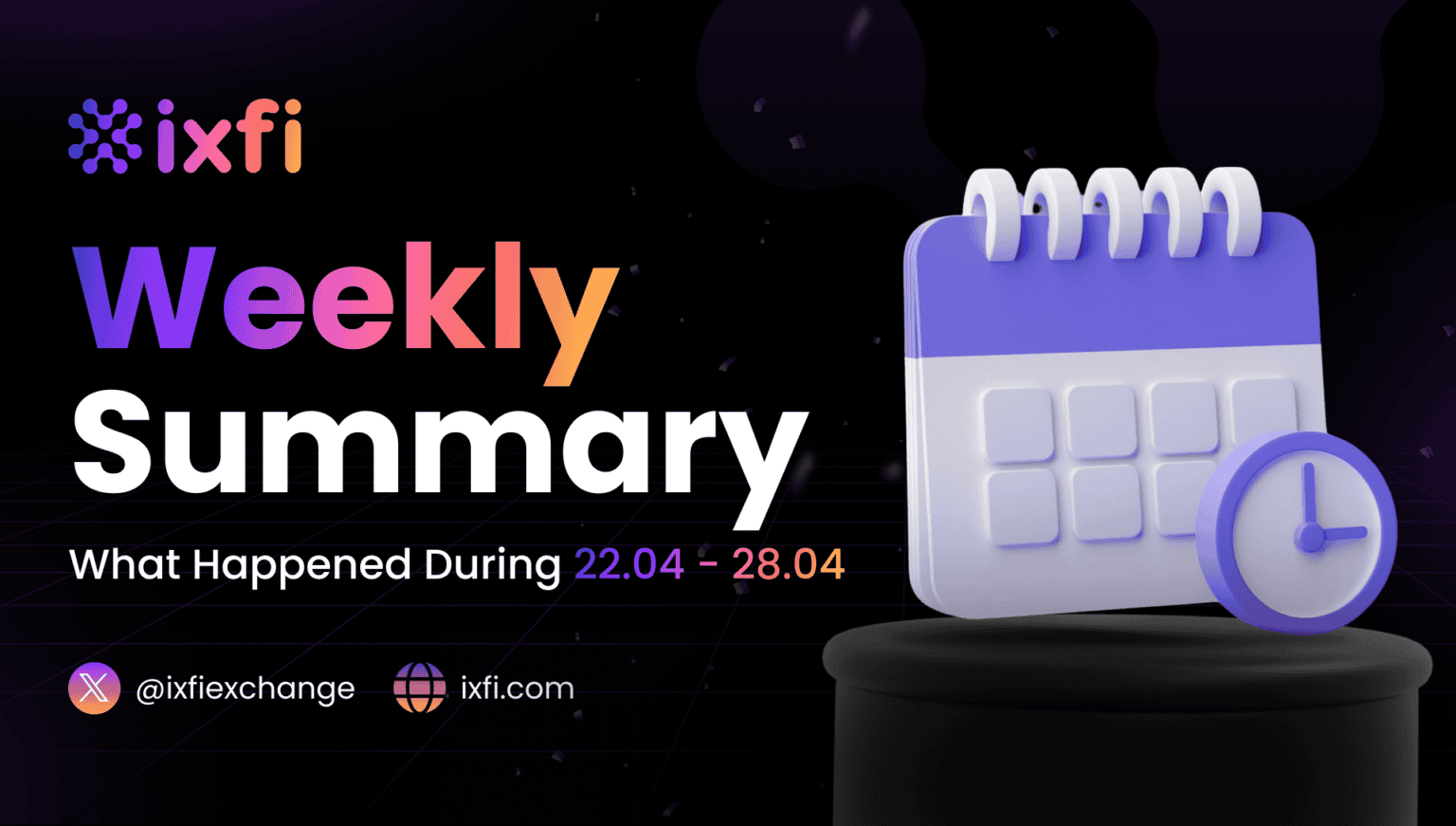For the majority of us, the saying “money makes the world go round” is true and needs no further explanation. I have to admit that I am also a strong believer in this statement.
One of the important pillars of our world is the financial market. As the times that we live in are changing, everything else needs to follow the change in order to stay relevant — and so does the financial market. In the recent years we observed the creation of a trend that defines two major categories: the classical financial markets and the newer financial markets.
This article will focus on describing the advantages and disadvantages of the classical financial markets, as they still are a big part of our lives today.
First, let’s draw a quick definition: what is, actually, the financial market? It represents the place (either real or virtual) where people meet to trade (buy and sell) financial instruments. In this definition, the term “people” is used in its widest form, covering both individuals and institutions.
The most common financial instruments are stocks (a.k.a. shares), bonds, ETFs, CFDs, options, futures, forwards. These ones, together with the currency market (FOREX) and the commodities market, they form what I like to call “the classical financial market”.
The other major category, “the new financial market”, I would say it’s made of the cryptocurrency market and other decentralized finance systems, due to their disruptive capabilities and unique characteristics.
Before we jump to the pros & cons, let’s take a minute to remind ourselves how everything started. It was the late 13th century — early 14th century in Europe, and the first instruments that were being traded were similar to the bonds of today.
This was even before the concept of shares, which means owning a part of a company after buying its shares. By the way, the first companies that issued shares were Italian companies of that time.
Speaking of shares a.k.a. stocks, there is a nice story to explain how the term “bourse”, which is a translation for “stock market”, came to be used. In the same period of time, various merchants used to get-together into a market that was close to an inn, which was owned by a family called Van der Beurze.
Their little get-together grew bigger and bigger, it became an institution, and the name was spread throughout Europe in many variations: Borsa (Italy), Bourse (France), Börse (Germany), and many others.
Now, let’s get into the action and see which are the most relevant advantages of today’s financial markets:
- They create the opportunity to transform cash in goods and vice versa — the speed of transformation depends on the goods that are to be exchanged: generally speaking, the stocks are more liquid than real estate;
- They create the connection between people with excess of money and people with shortage of money, and allow the money to move freely from one side to the other;
- Nowadays trading can be done globally, via internet;
- They offer the chance for a company to receive access to funds that otherwise would have been difficult to obtain by itself;
- They are open to everybody: individuals, public institutions, corporations, municipalities, governments, etc.
- They can accommodate a big variety of instruments, with various degrees of risk and liquidity;
- They create the conditions for pensions funds to exist — in some parts of the world, the pension funds invest greatly in shares and government bonds;
- They ensure the free flow of resources and create liquidity;
- They have the potential to be a strong component of a nation’s economy;
- They create jobs for many people all around the world;
- They are regulated by various institutions, making them trustworthy for the people that are using them;
- They give the opportunity to business owners to bring their ideas to life and to expand their businesses;
- There are fiscal advantages for the investors, of course depending on the fiscal laws of the country where the investors are located.
On the other hand, every coin has two sides, and we have to also acknowledge the presence of some disadvantages:
- In this times that we are living now (year 2021) they are heavily dependent on electronic systems, which means they could be vulnerable to power outages, cyber-attacks, etc.;
- They are affected by inflation — meaning that the power of money decreases over time;
- The instruments and the associated vocabulary are a little bit difficult to be understood by somebody who is not familiar with terms and procedures it is quite common to ask help from a financial consultant;
- They accommodate financial instruments that have various degrees of risk, from low risk to high risk money can be lost quite fast, if people do not know the characteristics of the instruments they use;
- Even if there are money to be made from the financial markets, the income is generally variable this should not be the only source of income for a person;
- Making transactions on the financial markets means also that you will have to use brokers — and they will charge you a commission for every transaction you make, regardless if it is selling or buying;
- There are some instruments that require an overnight fee; meaning that you pay a tax for every night that you keep them in your possession — they are dedicated for day trading (example: you buy them in the morning and you sell them in the evening).
In conclusion, I would say that considering both the advantages and disadvantages of classical financial markets, they will still be part of our lives, for a good period of time.
Disclaimer: The content of this article is not investment advice and does not constitute an offer or solicitation to offer or recommendation of any investment product. It is for general purposes only and does not take into account your individual needs, investment objectives and specific financial and fiscal circumstances.
Although the material contained in this article was prepared based on information from public and private sources that IXFI believes to be reliable, no representation, warranty or undertaking, stated or implied, is given as to the accuracy of the information contained herein, and IXFI expressly disclaims any liability for the accuracy and completeness of the information contained in this article.
Investment involves risk; any ideas or strategies discussed herein should therefore not be undertaken by any individual without prior consultation with a financial professional for the purpose of assessing whether the ideas or strategies that are discussed are suitable to you based on your own personal financial and fiscal objectives, needs and risk tolerance. IXFI expressly disclaims any liability or loss incurred by any person who acts on the information, ideas or strategies discussed herein.




